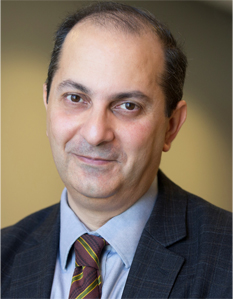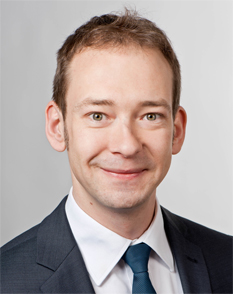KEYNOTE SPEAKERS
Prof. Tatsuo Arai Osaka University, Japan

Tatsuo ARAI received B.S. M.S. and PhD degrees from the University of Tokyo in 1975, 1977, and 1986, respectively. He joined the Mechanical Engineering Laboratory, AIST in 1977, and was engaged in research and development of new arm design and control, mobile robot, teleoperation, and micro robotics. He stayed at MIT as a visiting scientist in 1986-1987. He was an adjunct lecturer at Chiba University and gave a course on robotics. He moved to Osaka University in 1997 and since then he has been a full professor at the Department of Systems Innovation, Graduate School of Engineering Science. His current research topics are mechanism design including parallel mechanisms, legged working robot, micro robotics for bio application, humanoid robot, haptic interface. He has published more than 400 journals and reviewed conference papers on robotics, 5 books, and has 37 patents including foreign 8. The publication list is on http://www-arailab.sys.es.osaka-u.ac.jp/result.html. He is IEEE Fellow, IAARC (International Association of Automation and Robotics in Construction) Director, RSJ (Robotic Society of Japan) Fellow, and JSME (Japan Society of Mechanical Engineers) Fellow. He is a deputy editor-in-chief of the Robomech Journal. He worked for the Cabinet Office as a chair of the Technical Advisory Committee of the Destruction of Abandoned Chemical Weapon in 2000-2007.
Prof. Amin Hammad Concordia Institute for Information Systems Engineering, Canada

Amin Hammad is a Full Professor at the Concordia Institute for Information Systems Engineering in Montreal, Canada. He received his Bachelor degree in 1986 from Damascus University, Syria, and Master’s and Ph.D. degrees from Nagoya University, Japan, in 1990 and 1993, respectively. Prior to joining Concordia University in 2003, he has held faculty and visiting positions at Nagoya University, Carnegie Mellon University, the University of Pittsburgh and the University of Tokyo. His current research interests are in the areas of automation in construction and facilities management systems. The research aims to improve productivity and safety on construction sites and the sustainability of facilities by developing new methods using distributed sensing, real-time simulation, resource optimization and visual analytics. He edited one book and published four book chapters and more than 180 papers in peer-reviewed journals and conferences. He is the recipient of several awards including the Fulbright Visiting Research Chair award and the Japanese Monbusho Scholar award. He was a board member of the Canada Building Information Modeling Council and the chair of its research and education committee during 2009-2012.
Prof. André Borrmann Technical University Munich, Germany

André Borrmann is Full Professor for Computational Modeling and Simulation and chairs the Center of Digital Methods for the Built Environment at Technische Universität München. His research focuses on developing computational methods and tools for supporting the design and engineering of complex systems and products, in particular buildings and infrastructure facilities. His research interests cover the fields of Building information modeling, Geometric design and analysis, Design automation, Construction process simulation and Pedestrian Dynamics. He published more than 200 peer-reviewed papers and won several awards, among them the Best Paper Awards of the ASCE Journal of Computing in Civil Engineering in 2009, the European Conference on Product and Process Modeling (ECPPM) in 2010, and the International Conference on Computing in Civil and Building Engineering (ICCCBE) in 2014. Professor Borrmann acts as an Editorial Board Member of Advanced Engineering Informatics and the International Journal of 3-D Information Modeling. He is currently the Chair of the European Group of Intelligent Computing in Engineering (EG-ICE) and the Vice Chair of the German Association of Computing in Civil Engineering (GACCE). He is actively supporting the construction industry’s shift towards the adoption of advanced digital technology and acts as advisor for the German government concerning the broad introduction of Building Information Modeling in public construction projects. Related to this, he is pushing forward the international standardization activities of buildingSMART, in particular in the infrastructure domain.